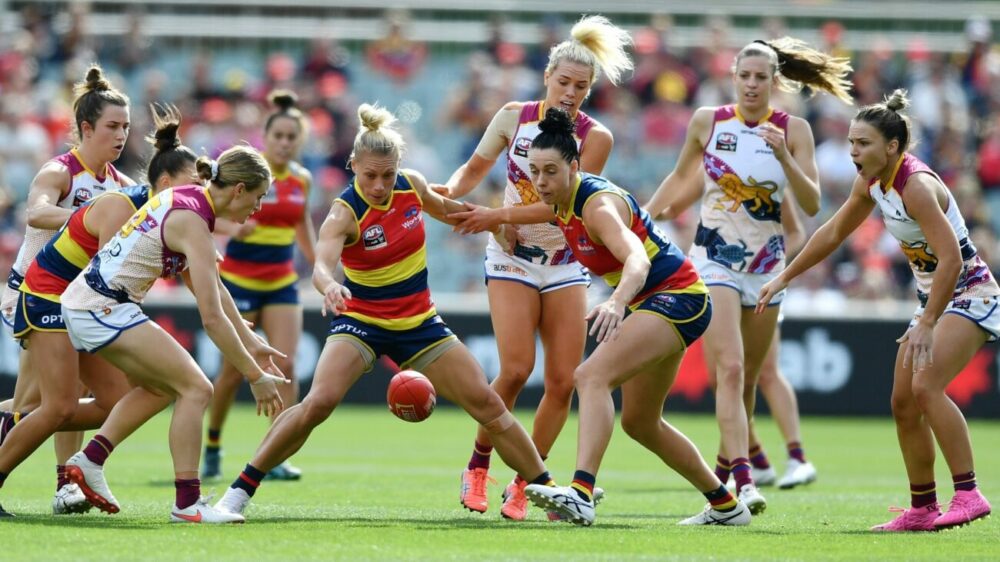A COVID-19 outbreak has caused the AFLW grand final to be moved to Saturday, 9 April, after it was originally scheduled to take place on 2 April.
The date reshuffle comes after the Collingwood Magpies were unable to field a side in their qualifying final match against the Brisbane Lions due to a majority of the team’s athletes being impacted by COVID-19.
The Magpies vs Lions match has been rescheduled to Sunday, 26 March, with the victor scheduled to take on Melbourne in the preliminary final.
AFL general manager of women’s football, Nicole Livingstone, said the league is pleased to provide some certainty regarding the upcoming matches despite prioritising its player’s health.
“The health and safety of everyone in the competition remains the highest priority – we have worked closely with Collingwood on the return to play for their program and with the Lions from a fixturing perspective,” Livingstone said.
“We couldn’t be prouder of the commitment from both clubs and everyone across the competition for the role they have played despite the many challenges we’ve faced,” she said.
The postponement joins a series of game delays throughout the season, with multiple AFLW rounds and teams being impacted by COVID-19.
The pandemic’s subsequent financial blow has had a heavy impact on Australian and global sports with the AFL in particular reporting $43 million hit during the 2021 season due to the COVID-19 pandemic.
The introduction of extensive COVID-19 testing, additional travel and accommodation requirements alongside the setup of high-performance centres to house the travelling teams and families, has cost the league $76 million over the past two seasons.
AFL CFO, Travis Auld, said the league’s preparation for a challenging year led to a ‘best-case scenario’ operating loss.
“Critical decisions were made in 2020 to underpin the financial strategy of the industry with the introduction of debt facilities to the value of $660 million,” Auld said.
“These facilities were extinguished in 2021 following the continued focus on managing the overall cost base and driving revenue growth, while delivering the season safely in a pandemic.
“The focus remains on the rebuild and strengthening of the industry balance sheet that will enable future investment in the growth and development of our game from grassroots through to elite platform,” he said.
COVID-19’s financial impact has also buried into the NRL’s liquidity, with player relocation, lockdowns, and health and safety requirements costing the league $100 million since the virus landed in Australia.
Unlike the AFL, the code didn’t have any assets to secure financial safety during the first two years of the pandemic, leaving it more vulnerable to COVID-19’s affects.
However, ARL Commission chairman, Peter V’landy’s, said the league’s reduction of expenses will put it in a good financial state while it diversifies its revenue streams.
“We have also procured some new commercial revenues and the deal with Sky New Zealand is going to be helpful,” V’Landys said.
AFLW ticket prices for the ongoing finals series will remain at $10 for adults and free for under 18’s.







